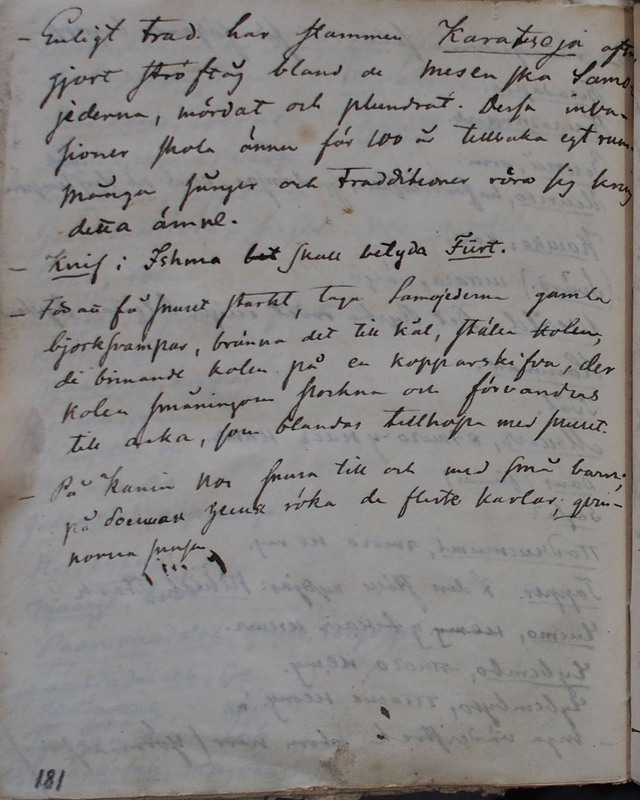Strödda ethnographiska anteckningar. 010
Title
Strödda ethnographiska anteckningar. 010
Description
|
Enligt trad[itionen] har stammen
Karatseja
often-Here Castrén is referring to a historical narrative(s) based on events that took place during the colonisation of Western Siberia from the 17th up until the mid-19th century. Wars between Russian and indigenous troops, but also constant waves of revolts against the Russian administration and towns but also against indigenous princedoms, took place repeatedly. The Харючи family, known in Russian as the Karačej or Karačejskie Samoyeds, formed one of the largest and most powerful Nenets communities not only in Siberia, but also among the European Nenets. They organised several raids on the fortress of Pustozersk in the 17th and 18th centuries, but also Obdorsk, and the Siberian princes were either asking the Tsar for help or to release the Karačej prisoners in order to bring back or retain peace in the area. (Perevalova 2019: 73–76)
gjort ströståg bland de Mesenska Samo- jederna, mördat och plundrat. Dessa inva- sioner skola ännu för 100 år tillbaka egt rum. Många sånger och traditioner röro sig kring detta ämne. Knif i Ishma skall betyda Fu̅rt. For att få snuret starkt, taga Samojederna gamla björksvampar, bränna det till kål, ställa kolen, de brinnande kolen på en kopparskifva, der kolen småningom srorkar och förvandlas till aska, som blandas tillhopa med snuret. På Kanin Nos snusa till och med små barn; på болшая земля röka de fleste karlar; qvin- norna snusa. |
According to tradition the Karatseja tribe often made occasional rushes against the Mezen' Samoyeds and murdered and plundered. These invasions took place 100 years ago. Many songs and traditions dealt with this subject.
Knife in Ishma is Fu̅rt. In order to make a rope strong, the old Samoyeds take birch fungus and burn it to make charcoal, they set the burning coals on a copper plate, where the coal eventually crumbles and is transformed into ash, which is mixed together with the twine. On Kanin Nos, even small children take snuff; in Bol'šaja zemlja most men smoke; women take snuff. |

